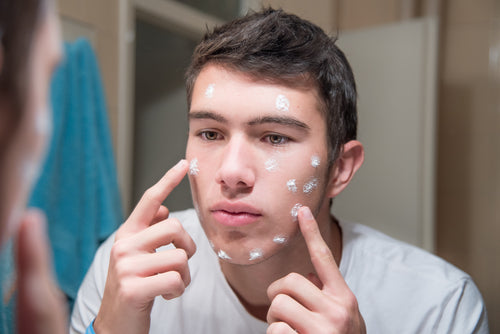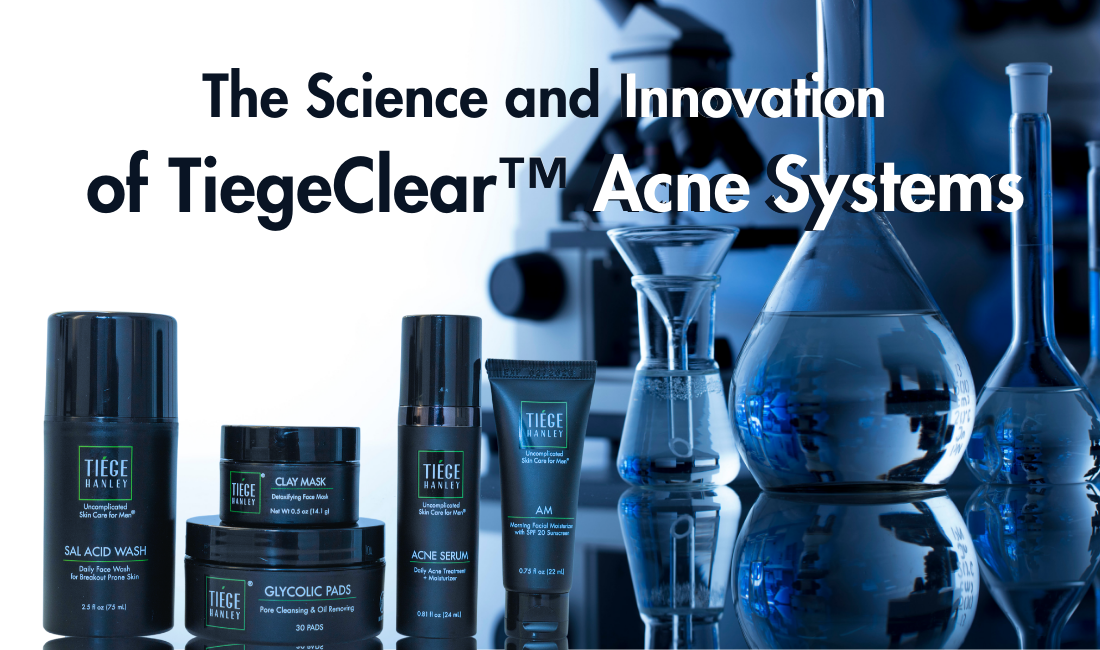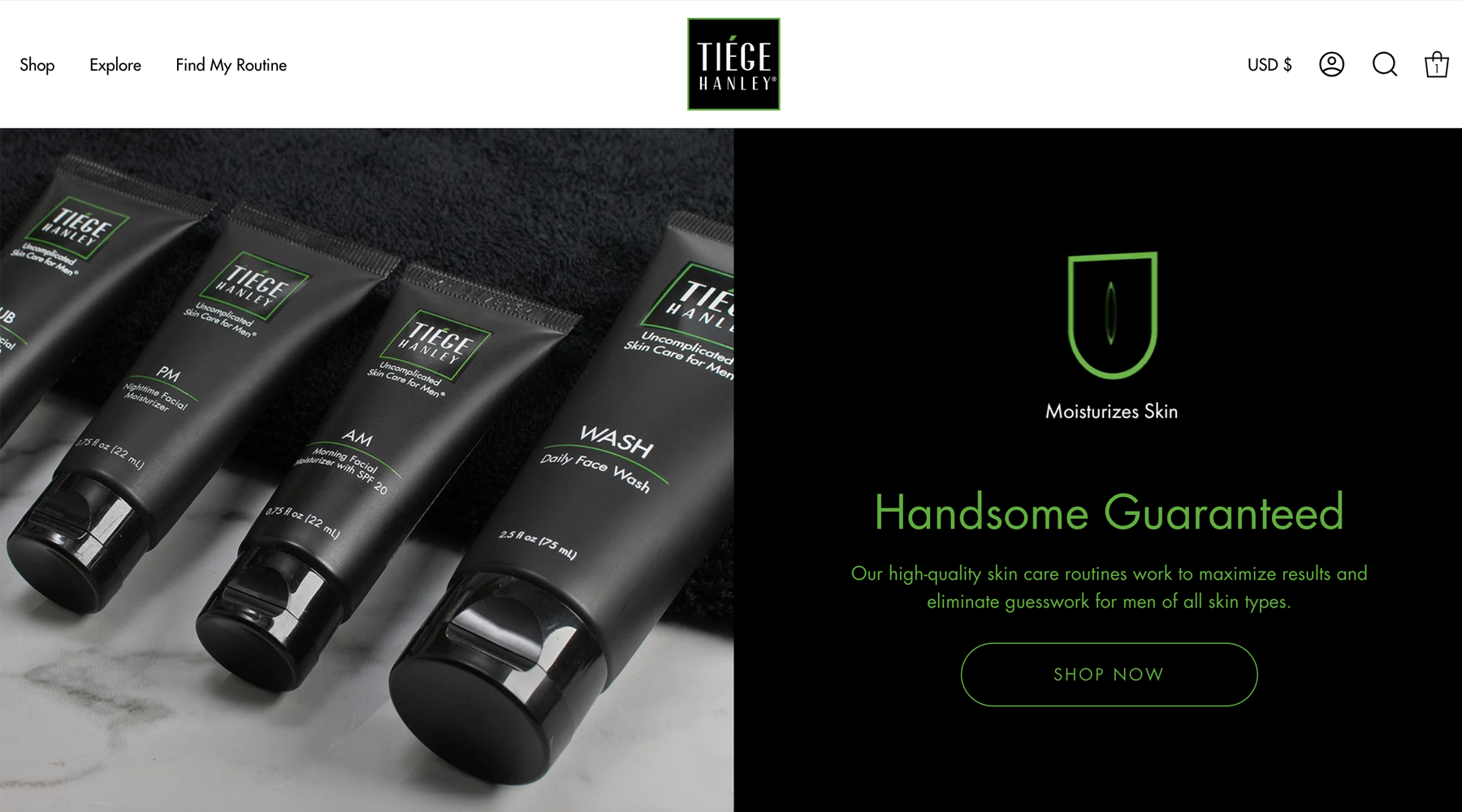Although it’s probably not too reassuring to self-conscious teenagers, acne is the most common skin problem in the United States.
Of the 40 to 50 million Americans who have acne at one point or another, most are teens—but it’s not unheard of for babies, young adults and middle-aged folks to have whiteheads, blackheads, severe acne or anything in between.
While acne sometimes isn’t entirely preventable, its prevalence means it’s worth taking a look into what exactly causes the annoying issue.
GOT ACNE?
The Four Main Factors
- Excess oil production: The body makes sebum naturally to keep skin from drying out, but when lots of the oil is produced, dead skin cells can stick together inside pores. Acne thus rears its ugly head when a pore in our skin clogs. The cells become trapped inside the pore instead of bubbling up to the surface (See paragraph: What causes acne?)
- Hair follicles clogged by oil and dead skin cells: Hair follicles are connected to oil glands all over your body, especially in areas where acne tends to form like the face, forehead, chest, back and shoulders. These parts of the body have the most oil glands. Follicle walls can bulge and produce whiteheads. Or plugs open to the surface can darken and cause blackheads (See second & third paragraphs under Causes.)
- Bacteria: While blackheads can look like dirt stuck in pores, the pore is actually congested with bacteria and oil that turns brown when exposed to air. Pimples, the annoying red spots that teens dread the most, have white centers that form when blocked hair follicles get inflamed or infected with bacteria. The excess bacteria help bring about blockages and inflammation deep inside hair follicles, which results in cystlike lumps beneath the skin’s surface (See fourth paragraph under Causes.)
- Excess activity of a type of hormone (androgens): Puberty is an interesting time, in both good and bad respects. Acne, of course, falls into the latter category. As a child’s body changes to the body of an adult, hormones like androgen help regulate it. Androgen is a male sex hormone, also present in girls, generated in larger amounts during puberty, and it makes your skin produce more oil than normal. Luckily for most, hormones settle down by the early 20s and acne usually recedes on its own. Of course, some aren’t so fortunate (See Causes section.)
Mitigating Factors
- Genetic Factors: This one’s simple. If both your parents had acne, there’s a high likelihood you’ll also have it. Multiple studies have shown this, including one that estimates having a first-degree relative with acne can make you four times more likely to be affected than those without one (See Page 4 text.)
- Immune system: Some immune systems just seem more vulnerable to acne. An improved understanding of why this is and how to counter it could help dermatologists design more appropriate treatment programs (See: Abstract section.)
Numerous Factors Can Worsen Acne
While none of the following are direct causes of acne, they all can trigger or aggravate it (See section: Factors that may worsen acne):
- Hormones: As we addressed earlier, this holds true for men and women.
- Certain medications: Stay away from drugs containing corticosteroids, testosterone or lithium.
- Diet: Bread, bagels, chips and other foods high in carbohydrates are not ideal for acne sufferers, which is particularly rough for teens likely to indulge in those foods. On the more technical side, scientific studies suggest a Western diet that is more high-glycemic causes insulin resistance, speeding up sebum output and inflaming acne. (See Epilogue section.)
- Stress: Stress, sometimes over how acne is perceived by peers, can also make outbreaks worse. Get a skin care regimen that will help you prevent further, more serious occurrences, take a deep breath and realize it won’t last forever.
Actual Tiege Hanley customer testimonial:
“Over a 3 year period, I probably spent over two grand in skin care and still had acne. I decided to reach out and request to be a part of the Tiege Hanley Acne trial and I have been blown away. After two weeks, my skin was clear. It’s not the acne cream alone that cleared it up, but how all of the products work together as a whole.” Kyle B., NJ.









